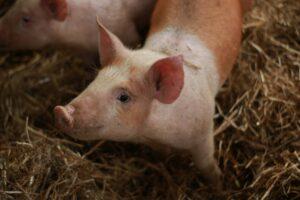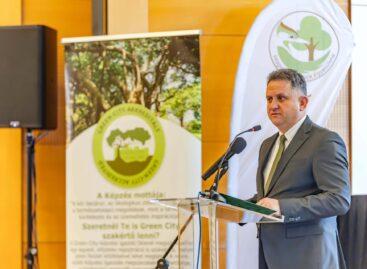Denmark Will Be First To Impose CO2 Tax On Farms, Government Says
Denmark, a major pork and dairy exporter, will introduce a tax on livestock carbon dioxide emissions from 2030, making it the first country to do so and hoping to inspire others to follow, the government has said.

A tax was first proposed in February by government-commissioned experts to help Denmark reach a legally binding 2030 target of cutting greenhouse gas emissions by 70% from 1990 levels.
The centrist government late on Monday reached a wide-ranging compromise with farmers, industry, labour unions and environmental groups on policy linked to farming, the country’s largest source of CO2 emissions.
“We will be the first country in the world to introduce a real CO2 tax on agriculture. Other countries will be inspired by this,” taxation minister Jeppe Bruus of the centre-left Social Democrats said in a statement on Tuesday.
While subject to approval by parliament, political experts expect a bill to pass following the broad-based consensus.
CO2 Tax
The deal proposed taxing farmers DKK 300 ($43.16) per tonne of CO2 in 2030, increasing to 750 crowns by 2035.
Farmers will be entitled to an income tax deduction of 60%, meaning that the actual cost per tonne will start at DKK 120 and increase to DKK 300 by 2035, while subsidies will be made available to support adjustments in farm operations.
The tax could add an extra cost of DKK 2 per kilo (2.2 pounds) of minced beef in 2030, minister for economic affairs Stephanie Lose told public broadcaster DR. Minced beef retails from around DKK 70 per kilo at Danish discount stores.
New Zealand this month scrapped plans to introduce a similar tax after facing criticism from farmers.
But while Danish farmers had expressed concerns that the country’s climate goals could force them to lower production and cut jobs, they said the compromise makes it possible to maintain their business.
ESM
Related news
European Court of Auditors: EU Commission proposals affecting the common agricultural policy may cause uncertainty
🎧 Hallgasd a cikket: Lejátszás Szünet Folytatás Leállítás Nyelv: Auto…
Read more >Walnuts are available at incredible prices
🎧 Hallgasd a cikket: Lejátszás Szünet Folytatás Leállítás Nyelv: Auto…
Read more >The Ministry of Agriculture pays special attention to supporting the horticultural sector
🎧 Hallgasd a cikket: Lejátszás Szünet Folytatás Leállítás Nyelv: Auto…
Read more >Related news
ZEW: Economic expectations worsened in Germany and the euro area in February
🎧 Hallgasd a cikket: Lejátszás Szünet Folytatás Leállítás Nyelv: Auto…
Read more >









